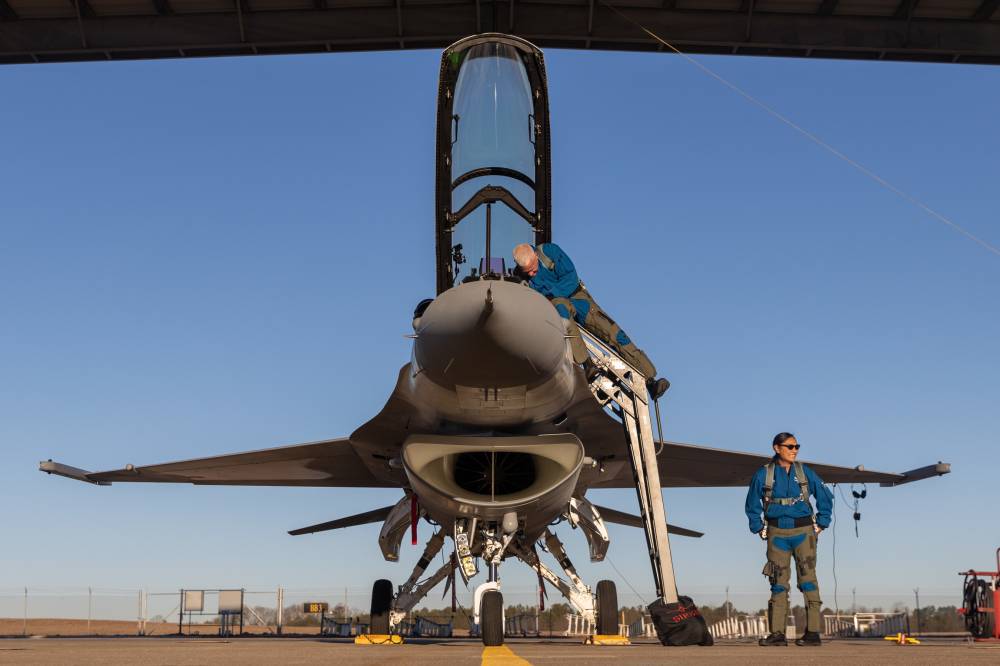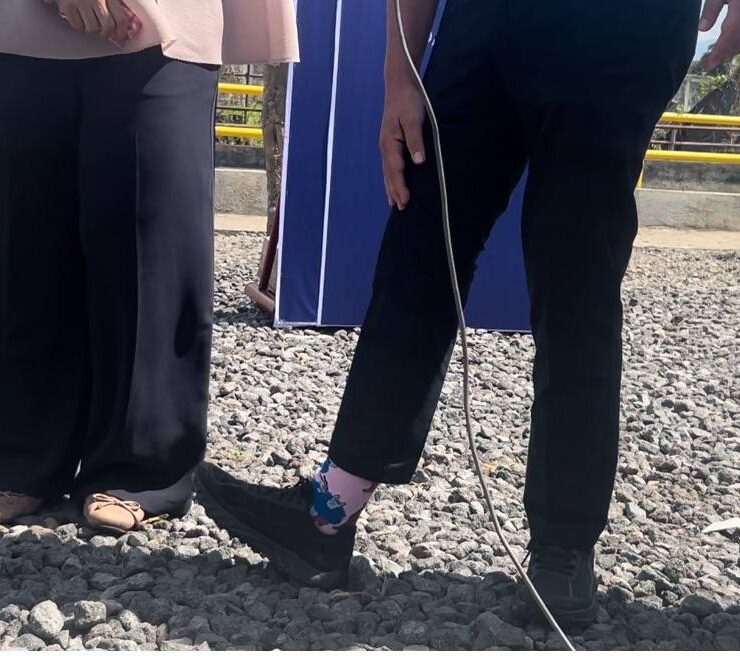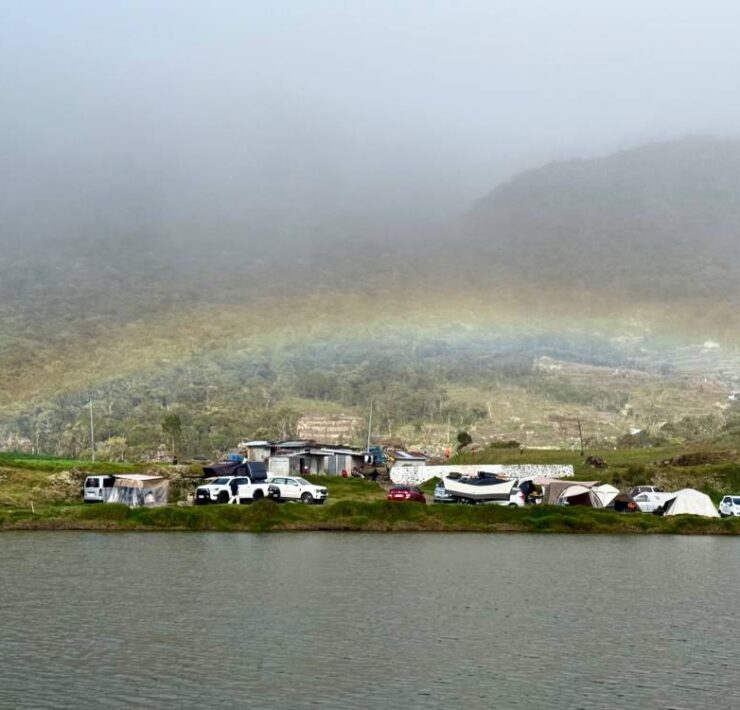Innovation hub part of F-16 offer to PH

American defense manufacturer Lockheed Martin’s offer of F-16 Block 70 fighter aircraft to the Philippines comes with the prospect of having an innovation hub for aerospace workforce development to support the country’s goal of a self-reliant defense industry.
Jess Koloini, director of business development at Lockheed Martin’s Integrated Fighter Group, told the Inquirer during her recent trip to Manila that part of their tailored offer to the Philippines included the possible establishment of a facility similar to its Center for Innovation and Security Solutions in Abu Dhabi to help grow the readiness of the workforce needed in the country’s aerospace sector.
“It’s really meant to be a facility that brings together leaders from Philippine academia, leaders from technical institutions in the Philippines, with worldwide leaders from Lockheed Martin and other US institutions to do joint research and development,” she said.
“We’re looking at some scholarships for aerospace engineering types of programs and the innovation center would really be the hub for all of that. We’re looking at things like workforce development, aerospace education and training, collaborative research and development,” she added.
Koloini said they were still exploring options on the potential location of the proposed innovation center in the Philippines.
“We have some ideas but it will be a center for the Filipino people and so we really want to understand where it would be most valuable for them. “In other international locations, the government has identified an innovation city or a place that they really want to see us place a center like this. And so we’re looking for that feedback,” she noted.
Final details
Last month, the US State Department approved a potential sale of 20 F-16 Block 70 multi-role aircraft to the Philippines worth $5.58 billion and Koloini said both governments were currently working on “a lot of final details.”
“We’re just really focused on providing the most cost-effective solution. The US government will ultimately present the package and the price to the Philippine government. I know they’re in talks about different financial arrangements, but those are our government-to-government discussions,” she said.
“I know in 2025 there will be some significant movement, but the governments are working very very quickly together. I think soon we’ll see some movement,” she added.
The Philippine Air Force, once among the finest in the region, has long sought to acquire proper fighter jets for deterrence.
It is currently using eleven South Korean-built FA-50 light combat aircraft after it retired its remaining fighters in 2005 because they were too old and costly to maintain.
Plans to acquire 40 multi-role fighters for the PAF have been a toss-up for years between the F-16s and Jas-39 Gripen of Sweden’s Saab, while South Korea’s Korea Aerospace Industries KF-21 Boramae is also a possible contender.
However, the Philippines’ budgetary constraints have stalled a final deal.
Seamless integration
Koloini said the F-16 would seamlessly integrate into the PAF as South Korea’s FA-50s were built based on F-16 engineering. The PAF could also use its Sniper advanced targeting pods both on FA-50s and F-16s, she said.
“In terms of ease of integration, it’s the most seamless platform to transition to. So going from the FA-50 to the F-16, we think is the easiest transition for them overall in terms of the multi-role fighter program,” she said.
Lockheed Martin calls the F-16 Block 70 the most advanced fourth-generation fighter with its modernized cockpit, APG-83 AESA radar, an automatic ground collision avoidance system to prevent deadly crashes and 12,000 hours certified service life.
Part of the offer to the Philippines includes conformal fuel tanks ‘”that allow us to go hundreds of nautical miles longer than our competition without a tanker” for long-range missions including the West Philippine Sea, Koloini said.
“They’re like extra fuel tanks. We’ve got fuel tanks here and then these conformal fuel tanks add hundreds of extra gallons of fuel. It extends the range of the platform hundreds of nautical miles.”
“It’s really important for the Philippines specifically because of the dispersed geographic area, being an archipelago with more than 7,000 islands, and then having so much activity out in the West Philippine Sea, that range is something that’s really important,” she said.
Production backlog
Lockheed Martin is also looking at possible in-country component repair for a more advanced MRO (maintenance, repair and overhaul) capability in the future, according to Koloini.
“From an economic development perspective, I think that’s really valuable in terms of just industrial development here,” she said.
If a deal is signed, deliveries could start in the late 2020s, she said.
“We’ve got about 114 aircraft right now in our backlog in the production line. We’ve delivered 26 already so we’re always looking at the best timing for a partner to come in the production line. Right now, we’re looking at the late 2020s timeframe but that’s to be determined and our final offer that’ll be offered to the government,” she said.
Currently, there are 3,100 F-16 aircraft operating around the world with about 500 in the Asean region.
F-16s recently took part in joint military exercises in the Philippines, including Cope Thunder and Balikatan, as part of efforts to boost interoperability and combat readiness.
“I think It’s important to acquire a platform like the F-16 because it strengthens the US relationship and the ability not only to talk to the US Air Force but other regional air forces is really important,” Koloini pointed out.
“Those 500 aircraft that are here in the Asean region, this would be part of that network. And we talk about it like a family….I keep using the word network, but really it’s a family of operators that grow together, that train together, and God forbid, fight together.”





















